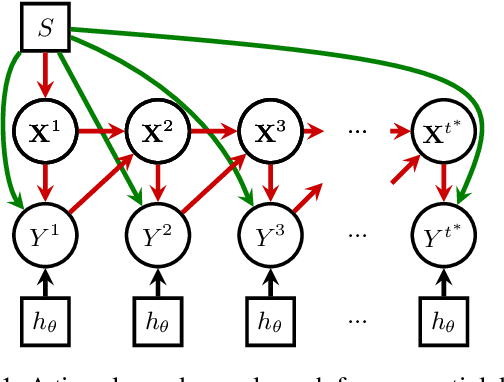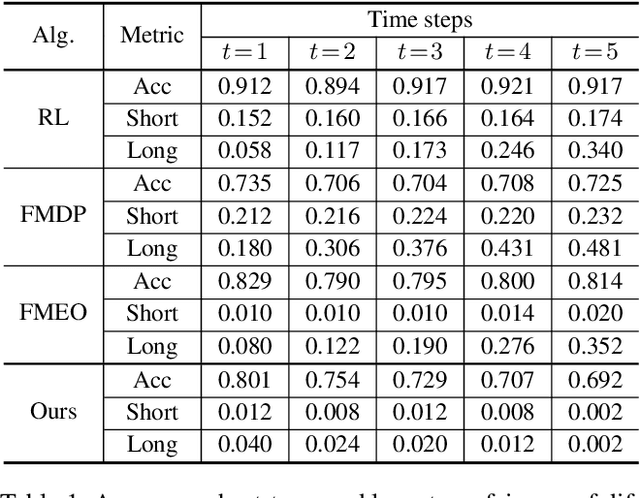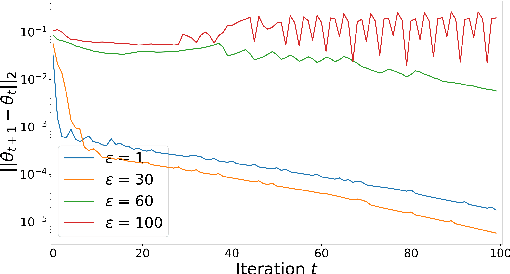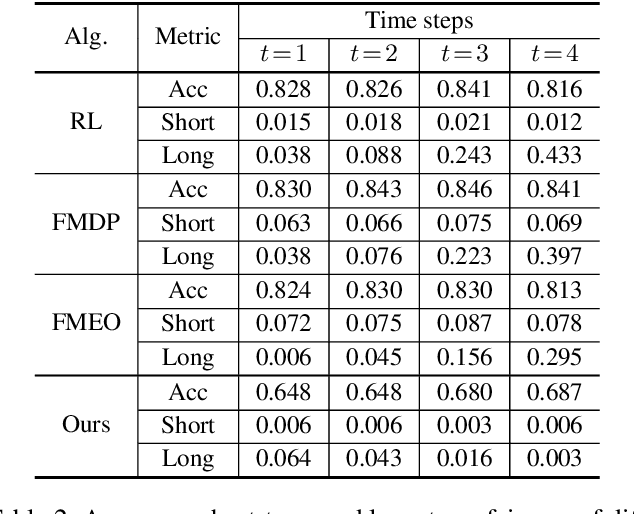Yaowei Hu
Causally Fair Node Classification on Non-IID Graph Data
May 03, 2025Abstract:Fair machine learning seeks to identify and mitigate biases in predictions against unfavorable populations characterized by demographic attributes, such as race and gender. Recently, a few works have extended fairness to graph data, such as social networks, but most of them neglect the causal relationships among data instances. This paper addresses the prevalent challenge in fairness-aware ML algorithms, which typically assume Independent and Identically Distributed (IID) data. We tackle the overlooked domain of non-IID, graph-based settings where data instances are interconnected, influencing the outcomes of fairness interventions. We base our research on the Network Structural Causal Model (NSCM) framework and posit two main assumptions: Decomposability and Graph Independence, which enable the computation of interventional distributions in non-IID settings using the $do$-calculus. Based on that, we develop the Message Passing Variational Autoencoder for Causal Inference (MPVA) to compute interventional distributions and facilitate causally fair node classification through estimated interventional distributions. Empirical evaluations on semi-synthetic and real-world datasets demonstrate that MPVA outperforms conventional methods by effectively approximating interventional distributions and mitigating bias. The implications of our findings underscore the potential of causality-based fairness in complex ML applications, setting the stage for further research into relaxing the initial assumptions to enhance model fairness.
Long-Term Fair Decision Making through Deep Generative Models
Jan 20, 2024Abstract:This paper studies long-term fair machine learning which aims to mitigate group disparity over the long term in sequential decision-making systems. To define long-term fairness, we leverage the temporal causal graph and use the 1-Wasserstein distance between the interventional distributions of different demographic groups at a sufficiently large time step as the quantitative metric. Then, we propose a three-phase learning framework where the decision model is trained on high-fidelity data generated by a deep generative model. We formulate the optimization problem as a performative risk minimization and adopt the repeated gradient descent algorithm for learning. The empirical evaluation shows the efficacy of the proposed method using both synthetic and semi-synthetic datasets.
Striking a Balance in Fairness for Dynamic Systems Through Reinforcement Learning
Jan 12, 2024Abstract:While significant advancements have been made in the field of fair machine learning, the majority of studies focus on scenarios where the decision model operates on a static population. In this paper, we study fairness in dynamic systems where sequential decisions are made. Each decision may shift the underlying distribution of features or user behavior. We model the dynamic system through a Markov Decision Process (MDP). By acknowledging that traditional fairness notions and long-term fairness are distinct requirements that may not necessarily align with one another, we propose an algorithmic framework to integrate various fairness considerations with reinforcement learning using both pre-processing and in-processing approaches. Three case studies show that our method can strike a balance between traditional fairness notions, long-term fairness, and utility.
Achieving Long-Term Fairness in Sequential Decision Making
Apr 04, 2022



Abstract:In this paper, we propose a framework for achieving long-term fair sequential decision making. By conducting both the hard and soft interventions, we propose to take path-specific effects on the time-lagged causal graph as a quantitative tool for measuring long-term fairness. The problem of fair sequential decision making is then formulated as a constrained optimization problem with the utility as the objective and the long-term and short-term fairness as constraints. We show that such an optimization problem can be converted to a performative risk optimization. Finally, repeated risk minimization (RRM) is used for model training, and the convergence of RRM is theoretically analyzed. The empirical evaluation shows the effectiveness of the proposed algorithm on synthetic and semi-synthetic temporal datasets.
 Add to Chrome
Add to Chrome Add to Firefox
Add to Firefox Add to Edge
Add to Edge